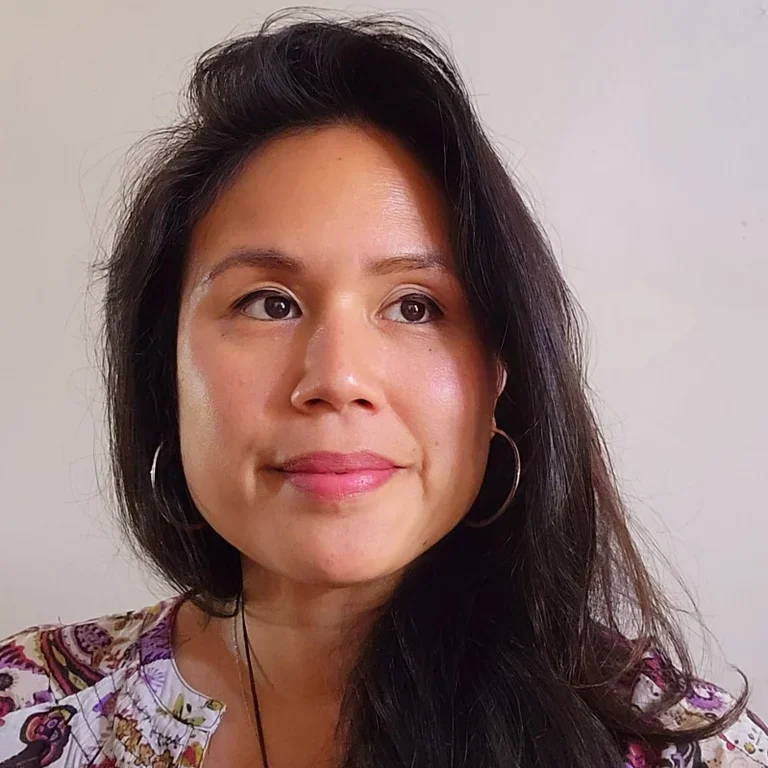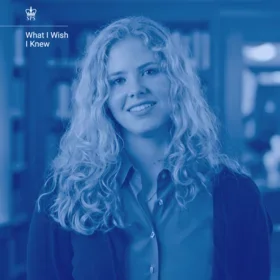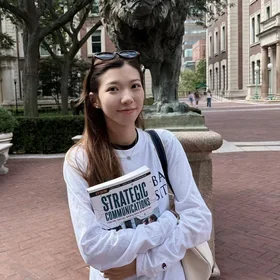By Chesa Caparas, Information & Knowledge Strategy (IKNS) Student, School of Professional Studies
As a community college professor who hosts workshops and designs curriculum on teaching with AI, I was fortunate enough to be selected among the inaugural AI Faculty Innovator-in-Residence Strategy Team (FIRST) cohort as part of a new program from the California Education Learning Lab.
The Learning Lab is a grantmaking organization that partners with the Foundation for California Community Colleges. Its mission is to fund innovation and close equity gaps across the three segments of California public higher education: Universities of California (UCs), California State Universities (CSUs), and California Community Colleges (CCCs).
The AI Faculty Innovator-in-Residence Strategy Team (FIRST) consists of six members, two from each segment of public higher education. My role on FIRST includes developing learning communities and curating resources related to AI in higher education.
I came to the FIRST program by way of several life-changing experiences. In 2022, I was a Fulbright Scholar in the Philippines studying media and information literacy during the country’s national election. I’m deeply interested in the impact of new media on democratic processes, and it wasn’t hard to see parallels between what was happening during the 2022 Philippine election and recent elections here in the U.S.
IKNS has given me new perspectives for understanding how emerging AI technologies are impacting what we know, how we know it, and why we want to know it.
Upon returning from my Fulbright, I wanted to continue studying how algorithmically curated media influence social behavior—and how policies may help manage these major social impacts. I also wanted to enhance my technical knowledge of emerging AI technologies. This brought me to Columbia’s Information & Knowledge Strategy (IKNS) program, which seemed like the perfect curriculum combining AI, data science, and organizational leadership.
During my first year at IKNS, I took courses like AI for the Knowledge-Driven Organization, Digital Workplace and Digital Transformation, and Business Analytics. This was a pretty big shift from my previous master’s in literature, for which I focused on 19th-century French realism. However, it all fits within the larger questions that drive my work: How is knowledge collected, organized, and disseminated, and how does this connect to democratic ideals?
Though I’m just starting my second year in IKNS, the lessons I’ve learned about working with people and working with data made me a strong candidate for the FIRST program. IKNS has given me new perspectives for understanding how emerging AI technologies are impacting what we know, how we know it, and why we want to know it. The program also provides skills to ensure that my work with people remains empathic and inclusive of different experiences.
As I begin another semester in IKNS, I look forward to learning more about collaborating with large groups and integrating AI into organizations. I’m confident it will only enhance my work as a Faculty Innovator-in-Residence.
About the Program
The Columbia University M.S. in Information & Knowledge Strategy (IKNS) degree provides students with foundations in information science, organizational psychology, and change management as well as practical skills in project management and executive leadership.
The STEM-accredited program is available full-time or part-time – online or in- person on Columbia’s landmarked campus right here in New York City. To maximize opportunities for networking and community building, our online students join our New York-based students on Columbia’s campus for three in-person residencies during their studies.
Students train under world-class faculty, including former and current executives from Google, IBM, NASA, and Oliver Wyman, and join a powerful global alumni network in coveted positions, including at Alphabet, Goldman Sachs, Nike, Pfizer, and the World Bank.
For more IKNS insights, news, and events, please go to our website, connect with us on LinkedIn, or attend one of our online info sessions. Visit the School of Professional Studies website to learn more about the SPS student experience.



